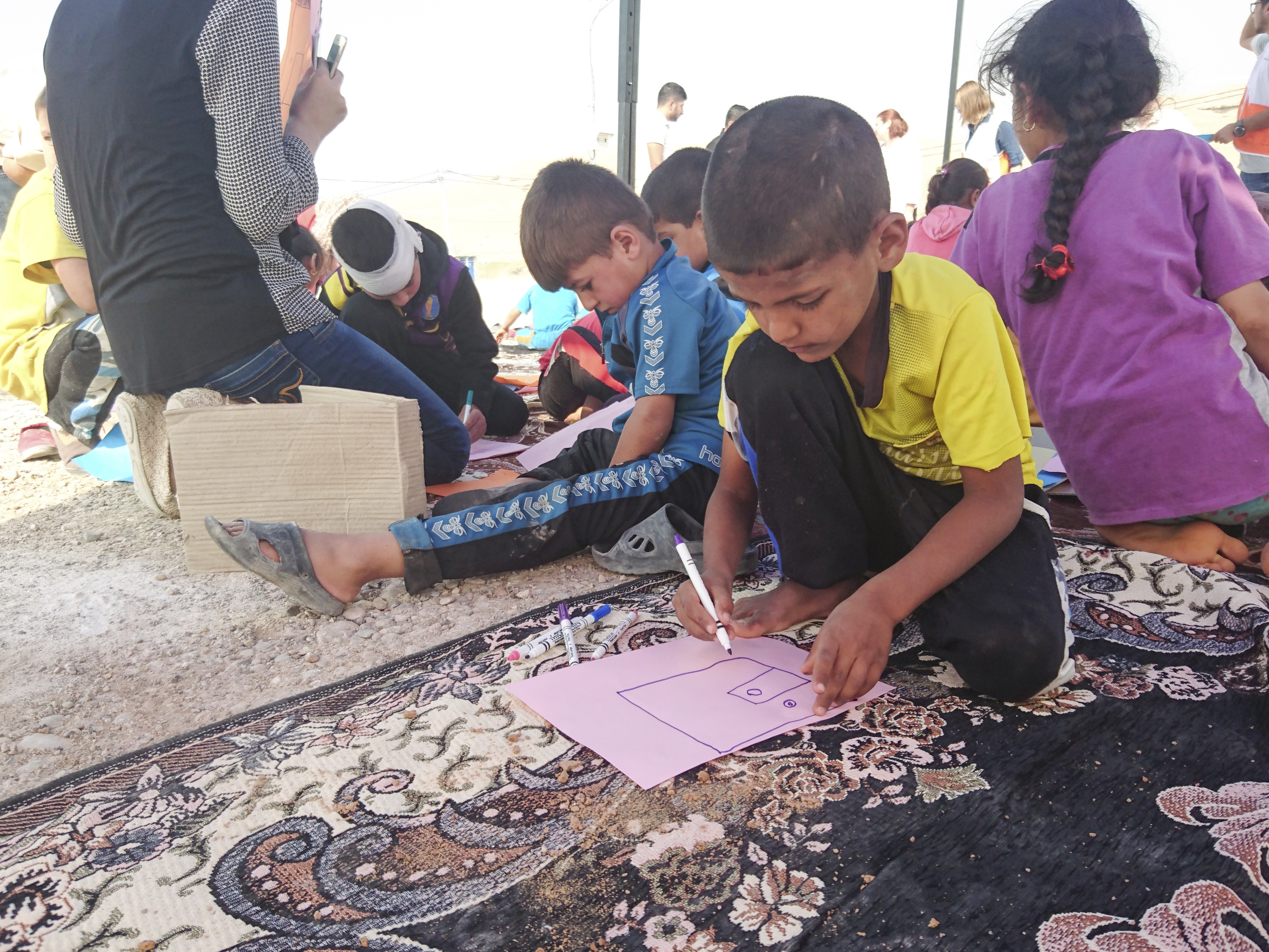Children of Mosul learning to play again
Friday, November 4, 2016

With children making up almost half the 20,000 people who have fled the besieged city, World Vision is focusing on creating safe spaces specifically to assist the recovery of children, many of whom have endured horrific circumstances.
Creating safe spaces and providing support to parents to let them know their child is safe allows a lot of recovery to happen naturally according to World Vision’s Humanitarian Portfolio Manager for the Middle East, Erin Joyce.
“Speaking to the children who have managed to escape, there is a real mixed bag of reactions. We are seeing children who are not speaking at all and then on the other hand some children are really happy as they have come from a very oppressive lifestyle for the last two years. Now they are able to play again.
World Vision has been setting up ‘Child Friendly Spaces’ in northern Iraq as part of its emergency response to the Mosul conflict. The spaces act as safe and secure places where children can take part in normal activities such as drawing, games and sport as well as receiving psychological support as needed.
“What we know from humanitarian crises from around the world – not just the one occurring in Iraq - is that if children feel safe, if they have a routine in place, and if you create a sense of normality then most of them will recover naturally over time,” Ms Joyce said.
“At our latest child friendly space in the Zelican camp – north east of Mosul – we are already seeing children’s behaviour change dramatically. They are opening up, they are engaging with one another and inventing games.”
Two years living under ISIL occupation and facing a litany of dangers while fleeing, such as landmines, snipers and fighters, has taken a toll on some of the children’s physical and mental health, Ms Joyce said.
“World Vision has community health workers and a psychologist with every mobile child protection team for that small percentage of children who need additional support. So they have that extra time to spend with that child individually as well as their families in the coming months,” she added.
As the conflict intensifies, the international aid agency is urging that safe passage out of Mosul and other affected areas for civilians be put in place. Humane treatment by all parties at every stage of the Mosul operation must be a priority.
Up to 700,000 people could leave the city, which has been occupied since June 2014. World Vision has been working around the clock to prepare for their needs, including providing food and clean water.
Donations to World Vision Australia’s Mosul Crisis Appeal can be made at: World Vision Mosul Appeal
For an interview with Erin Joyce please contact Kayla Robertson, Communications Specialist for World Vision KR-Iraq
Tel +964-7511220837, Skype kayla.e.robertson, email kayla@matter.studio
Media Releases,
Middle East, Eastern Europe & Central Asia
Back to all Results